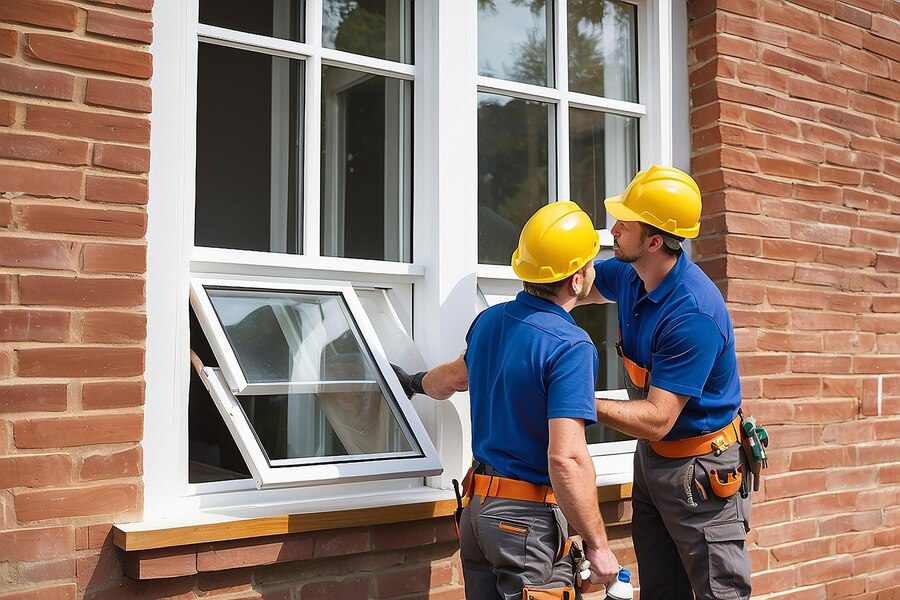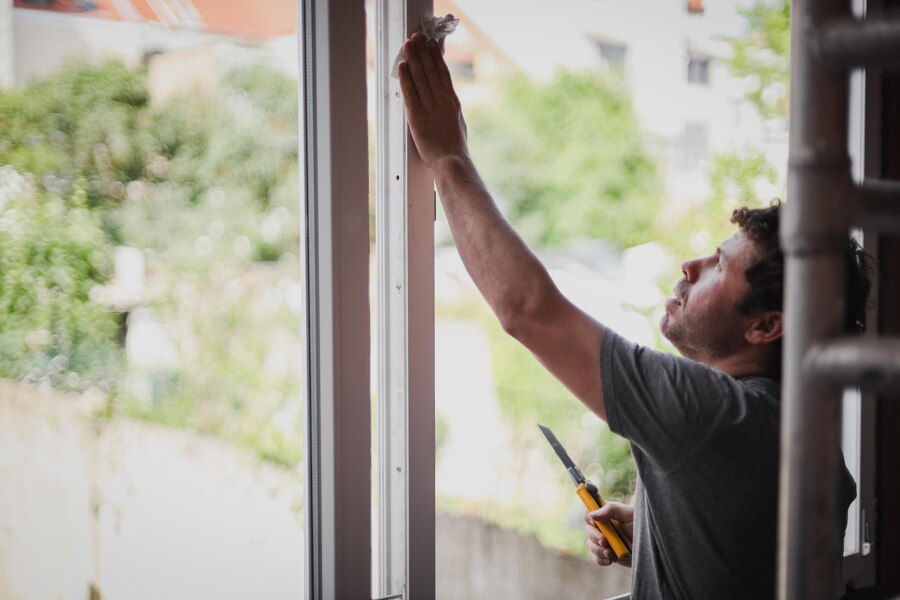
Factors to Consider Before Buying Replacement Windows
Replacing windows in your home is a significant investment that can enhance its appearance, energy efficiency, and overall value. However, choosing the right replacement windows requires careful consideration of several factors to ensure you make the best decision for your needs and budget. From understanding the different types of windows available to evaluating energy efficiency ratings and material options, there are many aspects to weigh before making your purchase. In this guide, we’ll explore the essential factors you should consider before buying replacement windows. Whether you’re looking to improve insulation, boost curb appeal, or simply upgrade outdated windows, our comprehensive overview will help you navigate the choices and find the perfect windows for your home. Let’s dive into the key considerations that will lead you to a smart and satisfying investment.
Energy Efficiency Matters: Key Factors to Consider Before Buying Replacement Windows
In today’s environmentally conscious world, energy efficiency is a crucial consideration for homeowners looking to upgrade their windows. Not only can energy-efficient windows help reduce utility bills, but they also contribute to a more comfortable indoor environment year-round. When choosing replacement windows, several factors come into play to determine their energy efficiency. Let’s explore these factors in detail to help you make an informed decision for your home.

Understanding Energy Performance Ratings
Before purchasing replacement windows, it’s essential to understand energy performance ratings. Two key ratings to look for are the U-factor and the Solar Heat Gain Coefficient (SHGC). The U-factor measures how well a window prevents heat from escaping, with lower numbers indicating better insulation. Similarly, the SHGC measures how much solar heat is transmitted through the window. Depending on your climate, you’ll want to balance these ratings to maximize energy efficiency.
Types of Window Glass
The type of glass used in replacement windows significantly impacts their energy efficiency. Double-pane and triple-pane windows are popular options that provide better insulation than single-pane windows. Gas fills, such as argon or krypton, between the panes further enhance insulation by reducing heat transfer. Low-emissivity (Low-E) coatings can also improve energy efficiency by reflecting infrared light and reducing heat gain in the summer.
Frame Materials and Insulation
Window frames play a crucial role in energy efficiency. Common frame materials include vinyl, wood, fiberglass, and aluminum. Each material has its pros and cons in terms of durability, maintenance, and insulation properties. Vinyl frames, for example, are low-maintenance and offer good insulation, while wood frames provide excellent thermal performance but may require more upkeep.
Proper Installation Techniques
Even the most energy-efficient windows won’t perform optimally if not installed correctly. Proper installation ensures a tight seal around the window frame, preventing air leakage and moisture infiltration. Hiring a professional installer with experience in energy-efficient window installation can help maximize the performance and longevity of your replacement windows.
Energy Star Certification
Look for windows that are Energy Star certified. Energy Star is a government-backed program that identifies energy-efficient products based on stringent criteria. Energy Star certified windows meet or exceed energy efficiency guidelines set by the Environmental Protection Agency (EPA) and can help homeowners save on heating and cooling costs while reducing their carbon footprint.
Local Climate Considerations: Choosing the Right Replacement Windows for Your Region
When it comes to replacing windows in your home, one of the most critical factors to consider is your local climate. Climate plays a significant role in determining the performance, durability, and energy efficiency of replacement windows. Understanding how different window features and materials interact with your region’s climate can help you make informed decisions that improve comfort and energy savings. Here are key considerations based on various climate conditions:
Hot and Sunny Climates
In regions with hot and sunny climates, such as the southern United States, windows face challenges like excessive heat gain and UV exposure. Opt for windows with low Solar Heat Gain Coefficient (SHGC) ratings to minimize heat transfer and reduce cooling costs. Consider windows with spectrally selective coatings or tinted glass to block out UV rays and reduce glare while maintaining natural light.
Cold and Snowy Climates
Cold climates, like those found in northern regions, require windows that provide excellent insulation to prevent heat loss during cold winters. Look for windows with low U-factor ratings, indicating better insulation properties. Double-pane or triple-pane windows with gas fills (e.g., argon or krypton) and Low-E coatings are ideal for trapping heat indoors and reducing heating expenses.
Humid and Coastal Climates
Humid and coastal climates experience high levels of moisture and salt air, which can accelerate window deterioration if not properly addressed. Choose windows made from materials that resist corrosion, such as fiberglass or vinyl. Consider impact-resistant glass to protect against strong winds and debris during storms. Ensure proper sealing and ventilation to prevent moisture buildup and mold growth.
Mixed Climates with Seasonal Variations
Regions with mixed climates, experiencing both hot summers and cold winters, require versatile windows that can adapt to changing weather conditions. Look for windows with a balanced combination of low U-factor and SHGC ratings to provide year-round comfort and energy efficiency. Consider adjustable window treatments or glazing options that allow you to control sunlight and heat gain based on the season.
High Wind and Severe Weather Zones
Areas prone to hurricanes, tornadoes, or frequent high winds demand windows that can withstand impact and extreme weather conditions. Choose windows that meet or exceed local building codes for wind resistance and impact resistance. Consider laminated glass or reinforced frames to enhance structural integrity and protect your home from potential damage.
The Importance of a Professional Installation Process for Replacement Windows
When investing in replacement windows for your home, the installation process is just as crucial as selecting the right windows themselves. Proper installation ensures optimal performance, energy efficiency, and durability. Here are key points to consider:
- Expertise and Experience: Professional installers have the knowledge and experience to handle various types of windows and ensure they are installed correctly according to manufacturer specifications.
- Seal and Insulation: A well-installed window creates a tight seal, preventing air leaks and moisture infiltration that can lead to energy loss and potential damage to your home’s structure.
- Warranty and Longevity: Many window manufacturers offer warranties that may require professional installation for validity. Proper installation helps maximize the lifespan of your windows and protects your investment.
- Code Compliance: Professional installers are familiar with local building codes and regulations, ensuring your windows are installed safely and in compliance with applicable standards.
Conclusion
Choosing the right replacement windows involves careful consideration of several key factors that impact both aesthetics and functionality. By assessing your specific needs in terms of energy efficiency, durability, and design preferences, you can make an informed decision that enhances your home’s comfort and value. Remember to prioritize quality materials and professional installation to ensure long-term satisfaction and performance.
If you have any further questions or need assistance in selecting the perfect replacement windows for your Cleveland home, feel free to contact us at EZ Window Solutions. Our team of experts is dedicated to providing personalized advice and top-notch service to meet your unique requirements. Whether you’re upgrading for energy savings, enhancing curb appeal, or improving indoor comfort, we’re here to help. Reach out to us at 440-773-4396 or visit our website for more information and to schedule your consultation today.


Write a Comment